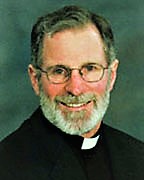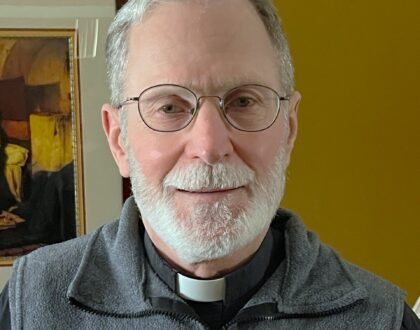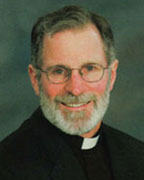Homily, September 1,2024

From The Pastor
For many important things in life an old adage rings true: ‘don’t throw out the baby for the sake of the bath water.’ It is not unusual for things of truth, goodness, and virtue to be lost simply because they take effort and commitment to understand and accomplish. Lessor things are often created as a substitute for the difficult things in the illusion that they will accomplish the same result.
Religion and spirituality are primary examples. True worship in the expression of mature religion is very different than functionally keeping external rules without the engagement of heartfelt love and devotion. Relationships are hard. Relationships of love and devotion are made secure with strong commitment from an interior stance of the human heart. Just doing the right thing because it is expected or in fear of punishment will never know the joy of love and the gift a true relationship can offer.
God gave Moses the Ten Commandments as a gift for the good of his people. The Law was an expression of the nature of God that directs people in a manner of life that unites them to God. The Law was not meant as a disciplined ‘gotta do or else’ kind of interaction. The Law opened people to the mystery and majesty of God as well as a code of behavior for the stability and integrity of society.
In the first reading, Moses is coming to the end of his life. He has led the people to the edge of the Promised Land and is giving them a final instruction before he goes the way of all flesh. For all his faults, complaints, and difficulty of life in service to the Lord, Moses loved God. He tirelessly spent his life leading, teaching, correcting, and forgiving the Israelites as they journeyed through the desert. Moses loved God through the Law and instructed his charges to do the same. We are seeing the passion Moses had for the love of God that he so ardently tried to give to the people. In this legacy message, Moses directs the people to know and love God through the Law, not adding or subtracting anything from it. In doing so, they would be seen as wise in the fruit and benefits given them through God’s Law. They would thus be blessed in the providence of God’s favor.
The theme is similar in the gospel today. However, the Law became more than it was intended to be. In his public ministry, Jesus is teaching the fulfillment of the Law through love and relationship with the Father. He is not discounting the Law, nor making it impotent. He is simply putting it in its proper place so the people could have a living relationship with God and others.
Sin bears its effect on human nature. In wisdom, God gave Ten Commandments. Against the directive of God, the Ten Commandments were turned into 613 rules and rubrics of religion. This is the case in today’s gospel. It is always a good practice to wash hands before eating, and the Jewish people did this. Further, the tradition was created that hands must also be purified spiritually. This was a second elaborate cleansing ritual. A burdensome tradition developed through human tradition that distracted from an active relationship with God. It was taught these many man-made laws were needed and expected by God.
Jesus calls the religious leader’s hypocrites as they diminish the Divine Commandment for the sake of human traditions. Jesus points out there is no love in this religious point of view. Such religion moves away from a dynamic personal relationship with God for the sake of an external functional practice that creates empty religion. Such a way makes religion impotent. An adherent can simply say, ‘what must I do to follow the way of God.’ Such external practices, burdensome and often oppressive to follow, leaves a person void of God and unknowing of self. It creates an external moral identity of function, ‘I am what I do.’ A heart of love falls out of the picture.
Where is the spiritual growth? Where is a maturing sense of self in a love directed life? How is one to know and understand the reality of God through external functions. This is why Jesus so strongly confronts the religious leaders only interested in the power and prestige this religious system offers them. True religion and worship of God is grounded in love, inescapable of a living relationship with God and others. A love relationship is more difficult than keeping rules and rituals in the illusion of spiritual activity.
The second reading makes this clear. True religion in the worship of God is this: care for orphans and widows, seek justice, serve your neighbor in love. A person cannot love or worship God without loving one’s neighbor. For your good and for the good of others go ahead and wash your hands.
Father John Esper
Recent Sermons

Homily, March 30, 2025
March 27, 2025

Homily, March 23, 2025
March 20, 2025

Homily, March 16, 2025
March 11, 2025

